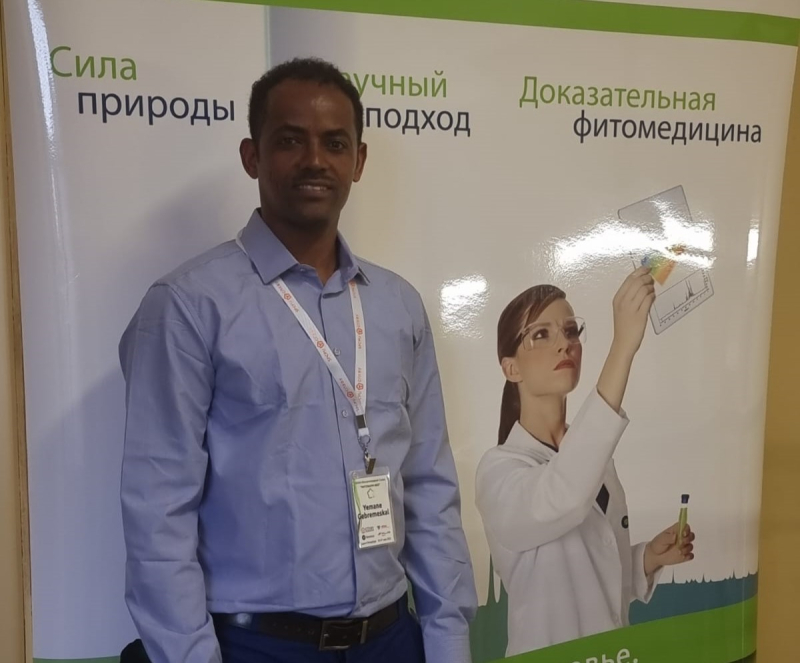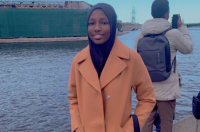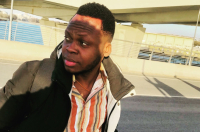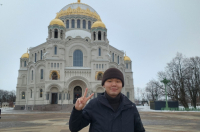Thanks for joining me today for this interview.
It is my pleasure. Thanks for the invite.
Tell us something about yourself.
My name is Yemane and I am from Eritrea, an African country. My homeland has rich cultures, breathtaking landscapes, and a history as diverse as its people. From the lively markets to the stunning Red Sea coastline, Eritrea is a gem waiting to be discovered!
What was your academic journey like before joining ITMO?
I pursued a Bachelor’s degree in applied chemistry from the University of Asmara in Eritrea with a major in biochemistry and a minor in biology. Then I moved to Thailand to obtain a Master’s degree in biochemistry for sustainable agriculture. And now I am doing a PhD in food technology.
Quite interesting! Tell us about your experience of studying in Thailand.
In 2015, I got a scholarship to Thailand, thanks to a joint initiative by the governments of Eritrea and Thailand. The main campus of Silpakorn University was in Bangkok, but my lab was located in Hua Hin which is a popular tourist destination. Therefore, I got to meet a lot of foreigners, especially Indians, Canadians, and Australians. I had classmates from Vietnam, India, Africa, and of course Thailand.
Did you learn Thai?
Yes, learning the language is always wise when living in a foreign country. I did attend Thai lessons, although it wasn’t mandatory. The language of instruction for my program was English. But I could carry out basic communication with the locals.
What motivated you to study in Russia?
I received yet another scholarship from the government of Eritrea for my PhD. My country has close ties with China, Hungary, Russia, and some other countries and every year students from Eritrea are selected to study in these countries. I was selected for the Russian government scholarship and although I was familiar with Russia, it was not completely my decision to study here. The system decided for me.
When did you come to Russia?
I came in 2021. I did my preparatory course at Tomsk State University in Siberia. It was my first introduction to cold weather and permafrost. All my life, both in Eritrea and in Thailand, the climate had been hot and humid. So it was a very new experience for me, but it was fantastic too. It was not at all easy to adapt. But with time life became easier. Tomsk State University has many international students who went through a similar experience. So, all of us together endured the harsh winter and discovered ways to bear with it.
Why did you eventually opt for ITMO?
I couldn’t find a PhD program that aligned with my interests at Tomsk. So I spent six months searching for the best university with the best PhD track in Russia. That is when I stumbled upon ITMO and instantly fell in love with everything. Especially its location. St. Petersburg, in my opinion, is the best city in Russia. Since October 2022, I have been studying and working in this mesmerizing city. I have already published three scientific articles and am also mentoring a few students, helping them in their projects.
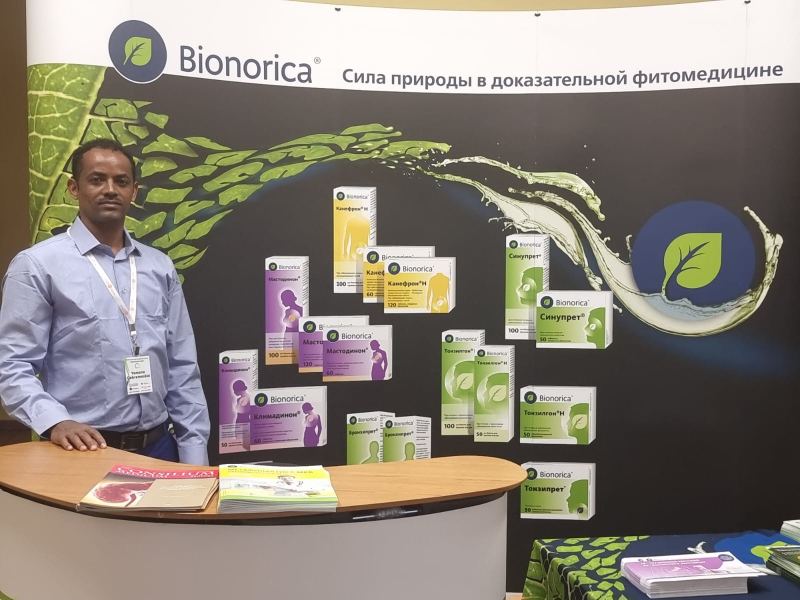
Yemane is developing sustainable extraction techniques for bioactive compounds. Photo courtesy of the subject
That’s a great story. What is your PhD project about?
I am developing novel processes for the extraction of bioactive compounds from medicinal plants. Several techniques of extraction exist, but not a lot of them are environmentally friendly. So I am particularly focusing on green technologies. These extracted compounds can have various applications in medical science. My work also focuses on the encapsulation these extracts in food items like dairy products, bread, and salads to make them more nutritious. Later on, I also want to study their effect on physiological processes by performing in vitro analyses.
Could you tell us a bit more about your role as a mentor?
As a mentor, I help students brainstorm and develop ideas for research. One of the biggest hurdles in science is identifying the problem statement. I help them polish their questions and direct them to the right places to find answers. I guide them on how to present their work at conferences or publish in peer-reviewed journals.
Are your mentees Bachelor’s students?
As of now, my mentees are Master’s students and first-year PhD students.
How has your life been in the best city in Russia?
It has been a fantastic experience so far. I have seen a lot of modern cities in my life with tall skyscrapers but none of them has ever impressed me. I am bored of watching high-rise buildings. Therefore, St. Petersburg’s architecture and classic aesthetics win my heart every time I step out of my dorm. The city is not overcrowded and life is pleasant. It is indeed the best Russian city!
What do you do in your free time?
As a PhD student, you don’t get much free time. But when I do have some, I like to read research papers. It helps me increase my database of knowledge while progressing my PhD work. Sometimes, I also like to learn a few new skills by enrolling in an online course.
I also like fitness and sport. I hit the gym regularly thanks to the amazing facility at my dorm on Vyazemsky Lane 5-7. Having a fully equipped gym at the dorm makes life so much more convenient.
Do you have a favorite Russian dish?
I don’t really have a favorite because I am used to eating spicy food. Both in Eritrea and Thailand, food is very spicy. Russian food is amazing and many dishes have similar recipes to Eritrean ones. The only distinguishing factor is the amount of spices used in these dishes.
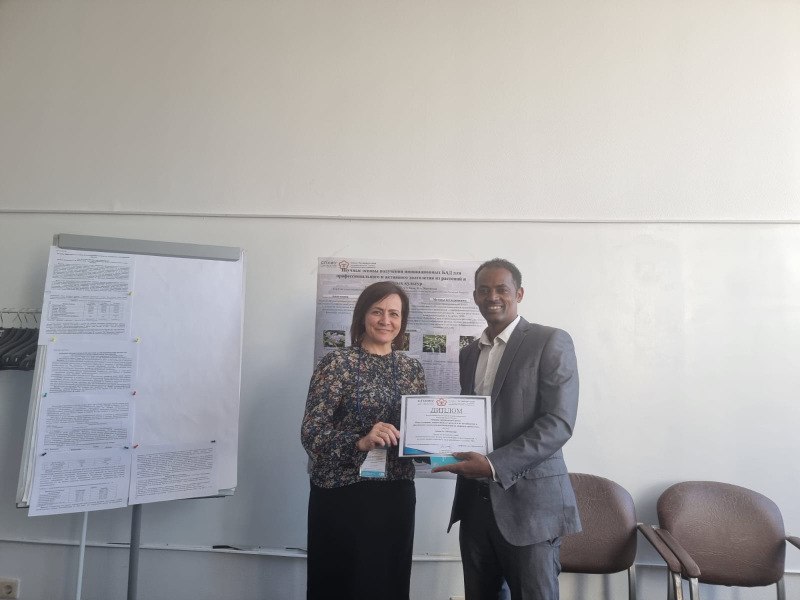
“I am really happy and enjoying my life in St. Petersburg,” says Yemane. Photo courtesy of the subject
What are your plans for the future?
After finishing my PhD, I would probably return to my country and work as a professor or lecturer. I like teaching a lot, so I would not consider changing my domain. Academia would be my workplace in the foreseeable future.
Finally, any advice to young PhD students?
Always have a clear goal in your mind. When you start your PhD, you should know exactly what your desires are. Spend time reading what’s happening around the world in your field of expertise and identify a solid problem, the answer to which you want to find during your PhD. And once you start with your PhD work, don’t waste time. Moreover, I would advise you to be well-versed in the requirements for getting a PhD in your country. For instance, I have made myself familiar with the requirements in Russia and now I am progressing according to that plan.
In a nutshell, there will be numerous occasions when you feel like giving up. The only phrase in your mind at such times should be – hang on!
